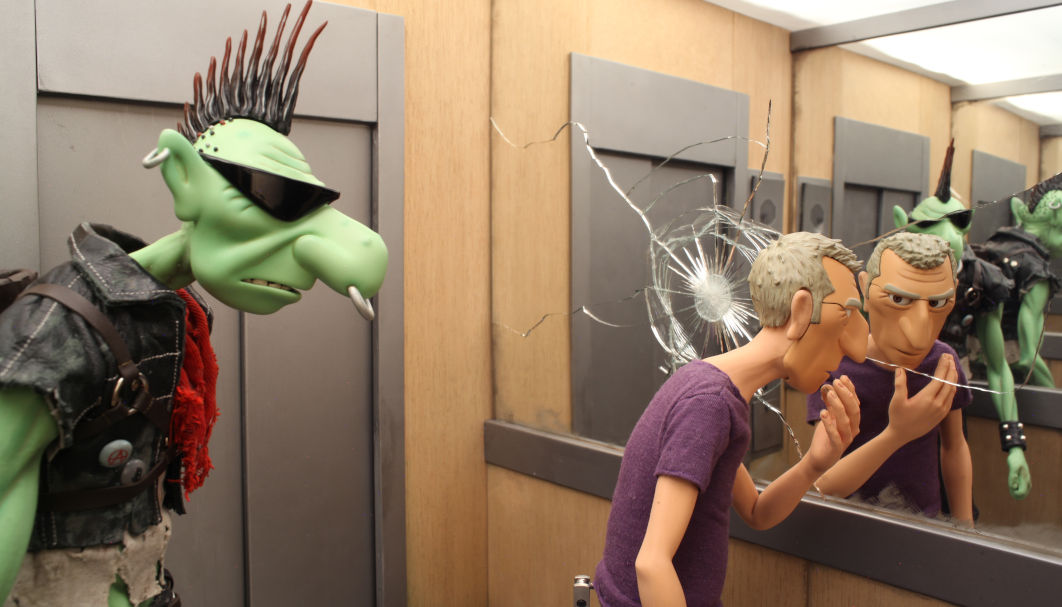
Bob Spit: We Do Not Like People
BY CASSADY LÓPEZ
We do not like people. People are cute, everything is cute these days. When we are exposed to an idea self-proclaimed as ugly or strange, we are given the opportunity to peer into something honest and candid. Let us see something beautiful and we are enchanted by its decorative demeanor, we are almost inclined to believe what we see because we want to. As it is easy to confide in phenomena that we find attractive. We want to believe in what we find beautiful, Bob Spit: We Do Not Like People (Cabral, 2021) lives in direct opposition to this aesthetic and instead analyzes the brutal existence within ourselves.
Bob Spit: We Do Not Like People is a stop motion mockumentary directed by Ceasar Cabral. The film centers around a famous cartoonist who is in the midst of a creative block. The film shares its protagonist between the cartoonist, Angeli, and his reincarnated self, Bob Spit (Angelis cartoonized alter ego).
This film exhibits the relationship between creation and creator, or rather, not the relationship but the struggle of existence and what it means to do so if your life is predestined. Or if your decisions are determined, and if free will truly exists. But this raises the question, if we are able to control and decide who we are, and what happens in our own life, does that not mean that we are the Gods of our own consciousness? And if so, does your conscious fear to be? Does it become everything you are afraid of bringing into existence? The most intrusive desires you fear you crave.
Bob spit instantly captures the attention and affection of the audience. It claims its individuality immediately. The visuals in the film are striking, grotesque, and beautiful. It works in tandem with its score, color palette, and the meta juxtaposition of screen and reality, to propel the story forward; each helps set the calm anger and vengeful tone of the film.
Bob spit fills the viewer with a perturbed sense of curiosity. We learn to empathize with what may be the focal point of the story: how we come to terms with an end of something, even that which we decide to kill ourselves. It possesses an unmatched ability to lure the audience into this strange and complex world, with eccentric editing and masterful writing, brought to us by this film. One moment we are in the reality offered to us by the makers, the next we are in a limbo, one of the subconscious. A purgatory of the brain.
We are brought along on this excursion of a particular type of self-discovery. The kind that brings you closer to the parts of you that you reject. Outwardly and openly. Possibly even the slow and gradual acceptance of our intrusive nature. This piece possesses a cerebral type of beauty. The type that provokes cautious perspectives and gives comfort to the delirious and ugly thought. It is as subversive as it is authentic. Bob Spit repeats Punk is not dead, and we wonder what it is that this film is keeping from the grave. Living. Breathing. Spitting.
Cassady López
Cassady López is a poet, writer, film enthusiast, sister and friend. She has performed and competed from the final stage at the Los Angels Get Lit Classic Slam to the Brave New Voices Slam stages. She writes and highlights subjects such as family, latinidad, homelessness and disability. She was born and raised in the desert and hopes to continue writing and creating with in her community



